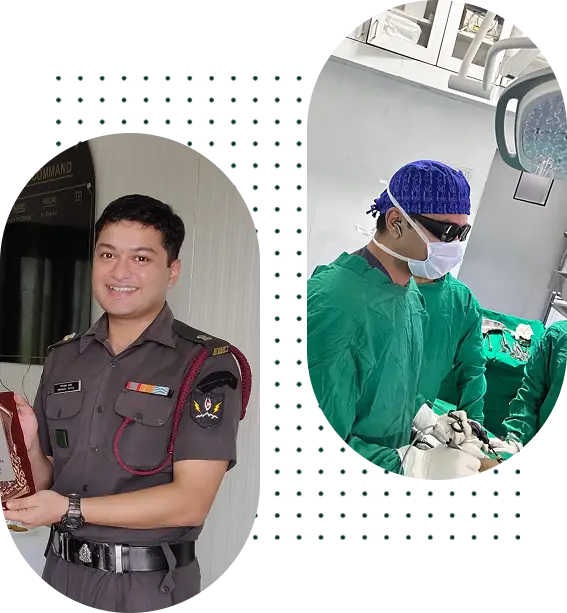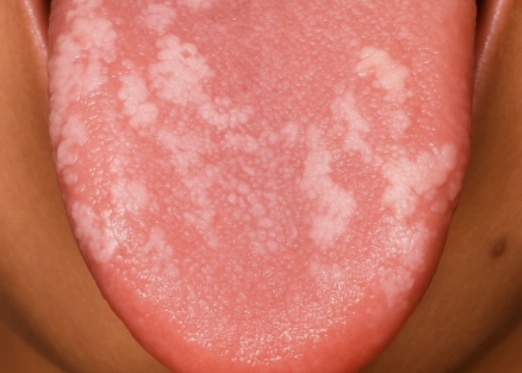Oral Cancer Doctor in Kolkata
Do you have a sore in your mouth that won’t heal?
A patch that feels off, bleeding gums or a lump that wasn’t there before?
These can be signs of oral cancer. If you notice any of these signs, consult Dr. (Maj) Ranajoy Dutta.
After years of serving in the Armed Forces, he knows early action saves lives, every single time. As an oral cancer surgeon in Kolkata, he now brings that frontline clarity with the same level of precision and urgency to civilian care.
What is Oral Cavity Cancer?
It is one of the most common cancers in India, especially among tobacco users. But non-smokers are not exempt. Poor oral hygiene, alcohol use, and even HPV infection are also some oral cancer causes that raise risk levels.

Types of Oral Cancer

Verrucous carcinoma
Slow-growing wart-like mouth cancer

Lymphoma
Cancer of immune cells in the mouth

Mucosal oral melanoma
Mouth lining skin cancer in the pigment cells inside the mouth

Sarcoma
Cancer of mouth muscles or bones

Odontogenic tumours
Tooth-related tumours
Oral Cancer Causes
Sun exposure

Call for Appointments
Begin your treatment journey with expert care. Schedule your appointment with Kolkata’s esteemed cancer specialist Dr. (Maj) Ranajoy Dutta today.

Oral Cancer Symptoms

Oral Cancer Diagnosis

Biopsy

Imaging tests (CT scan, MRI, or X-rays)

Endoscopy

Blood Test
Oral Cancer Treatment
Dr. (Maj) Ranajoy Dutta mostly recommends surgery as the first and most effective treatment for oral cancer, especially when the tumour hasn’t spread. Treatment may also include chemotherapy, radiation therapy, or targeted therapies to manage the spread and reduce recurrence.
If vital tissues are removed, reconstructive surgery and therapies like speech and swallowing rehabilitation support long-term recovery and quality of life.
In case you chew tobacco, smoke, drink regularly, or feel something is wrong, visit the clinic or call now to book an appointment with Dr. Ranajoy Dutta for effective oral cancer treatment in Kolkata.
Fill The Form
Contact Form

Make Appointment &
Take Care Of Your
Healthy Life

